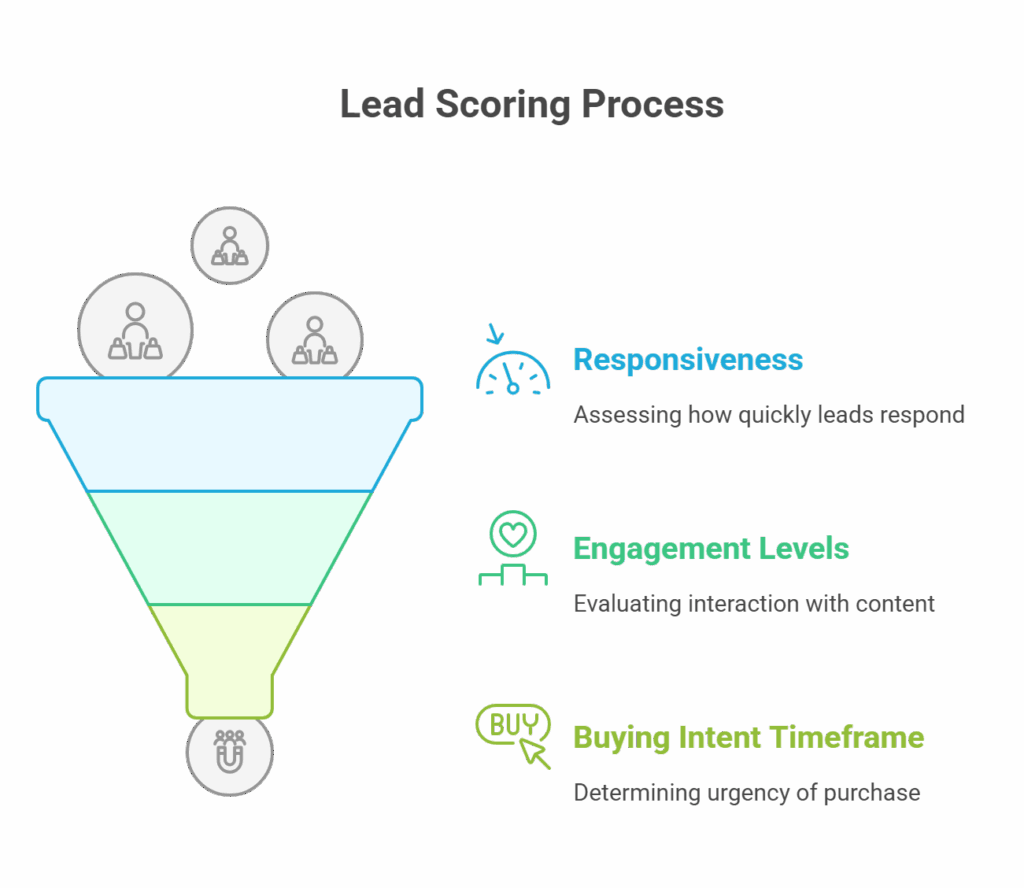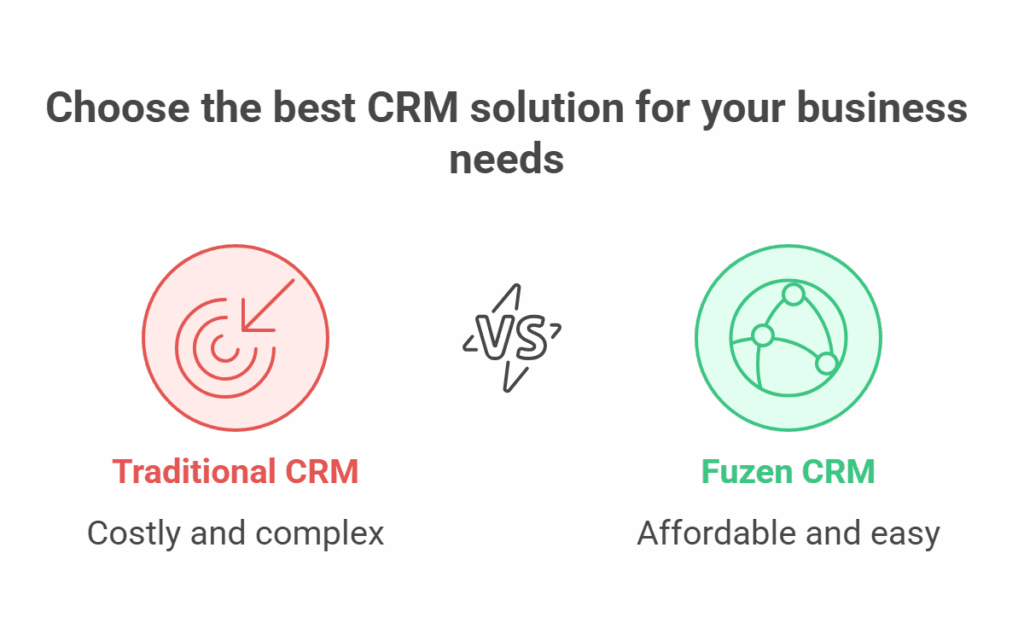Lead scoring is a smart way to sort through potential buyers. It helps real estate agents decide who is most likely to purchase a property. Think of it as a points system. Each lead, or potential buyer, gets points based on how ready they might be to buy. This system, often referred to as real estate lead scoring, brings clarity to an otherwise overwhelming sales pipeline.
Why does this matter? Real estate agents often deal with many leads. Not all of them will end up buying. By using real estate lead scoring, agents can focus on the leads that have the highest scores. These are the "hot leads," or the ones most likely to make a purchase soon. Managing leads this way saves time and boosts efficiency.
With real estate lead scoring, agents spend less time chasing unqualified leads. They can use their time and resources wisely by concentrating on those ready to move forward. This approach is crucial for turning potential interest into confirmed sales. Explore how lead scoring fits into a modern CRM solution for the real estate space.
What is Lead Scoring?
Lead scoring is a method that assigns points to potential buyers. These points are based on certain behaviors or traits. It's like grading each lead to see which ones are more likely to buy.
Here’s how it works: You start with predefined criteria. These criteria can focus on different aspects of a lead's behavior.
- Responsiveness: Are they quick to reply or engage?
- Engagement Levels: Are they opening emails or clicking links?
- Timeframe of Buying Intent: Are they looking to purchase soon?
When a lead shows positive signs in these areas, they earn more points. Leveraging real estate lead nurturing strategies can turn those high scores into closed deals as leads move closer to making a decision. This structured approach, central to real estate lead scoring, helps agents work more strategically.
This numerical approach makes it simple for real estate agents to see who is serious and who might need more time. By focusing on leads with higher scores, agents can target those ready to convert into customers more effectively and streamline real estate scheduling in the process.
Criteria for Scoring Real Estate Leads
Scoring real estate leads involves analyzing various behaviors and characteristics. For accurate point assignments, integrate your CRM with accounting—making real estate accounting easy helps eliminate errors and streamline the scoring process. In real estate lead scoring, these indicators become the foundation of identifying buyer intent:
- Website Behavior: Pay attention to what leads do on your website. Are they visiting multiple pages or spending a lot of time on listings? Frequent visits and longer time on specific listings typically signal interest. For example, if someone revisits a home’s detail page multiple times, they might be serious about that property.
- Engagement: Track how leads interact with your communication. Are they opening emails or clicking on links? High engagement levels can mean high interest. For example, if a lead consistently replies to emails or shows curiosity by clicking through to new listings, give them a higher score.
- Budget: A lead's budget is crucial. Ensure their financial readiness aligns with the properties they’re interested in. For instance, if they inquire about homes within their budget range, they likely have the means to proceed, increasing their lead score.
- Location: A lead’s interest in a specific area can show stronger intent. If someone frequently checks listings in a favored neighborhood, it might indicate they know what they want. This can elevate their score as they may have narrowed down their search to a specific location.
Each of these criteria affects how a lead is scored. By focusing on these areas, agents can prioritize leads more likely to convert. It helps in zeroing in on and nurturing the right potential buyers.
The Role of a CRM System in Automating Lead Scoring
CRM systems play a vital role in streamlining the lead scoring process. They automate scoring by using predefined criteria, which makes the whole process faster and more accurate.
Here's how it works: Once you set the criteria for scoring leads, the CRM system automatically assigns scores to each lead based on their actions and behaviors. With real-time analytics visualization, you see scoring trends instantly, reducing errors and speeding up decisions. The system also keeps each lead's profile up-to-date, ensuring that you have the latest information at your fingertips. For example, if a lead suddenly shows high engagement or interest in a particular property, the CRM updates their score accordingly.
Why is this important? It helps real estate agents focus their efforts where it matters most. With the CRM automating scores, agents can easily identify which leads have a higher conversion potential. This way, they spend their energy on leads most likely to become customers.
In short, a CRM system simplifies the management of leads and supports more accurate real estate lead scoring, ensuring that no potential opportunity is overlooked.
Real Estate-Specific Examples: Hot Leads vs. Casual Browsers
Real estate lead scoring becomes insightful when you differentiate between hot leads and casual browsers through real-world examples.
Consider a first-time homebuyer. They frequently return to the site, carefully exploring different listings and showing interest in various neighborhoods. They often engage by opening emails and clicking on suggested links. This behavior indicates strong intent and readiness to buy. Their actions earn them a higher lead score, marking them as a hot lead. With such consistent interest, they are closer to making a decision.
Now, compare this with a casual browser. They might visit the site occasionally and look at a few listings without a clear focus. They may open emails but rarely click through to learn more. Such behavior suggests they are just browsing without the intent to buy soon. As a result, they receive a lower lead score.
These examples show how behaviors and engagement levels help in scoring leads effectively. By focusing on hot leads like the engaged homebuyer, agents can prioritize those who are more likely to convert, making the selling process efficient and targeted.
Building a Customizable CRM with Fuzen: Simplified and Cost-Effective
Fuzen offers a nocode platform that revolutionizes how you build CRM systems. Traditional CRM solutions can be costly and complex, but Fuzen provides an affordable and easy alternative.
Imagine creating your own CRM tool without writing a single line of code. With Fuzen, it's possible. You simply outline your requirements, and Fuzen's platform takes care of the rest, generating a CRM tailored to your needs. This means that real estate agents can have systems that perfectly fit their real estate lead scoring criteria and include only the CRM features that matter most to them.
Moreover, Fuzen’s applications are scalable. As your business grows, your CRM can grow with it. Whether dealing with a few leads or hundreds, the system adapts smoothly. Maintenance is straightforward, too. With simple no-code tools, updates and changes are easy to manage.
By using Fuzen, you save significantly on costs. Fuzen charges for hosting, while app development can be done at minimal cost or even free. This makes building a powerful CRM accessible for everyone, leaving more resources for other critical business needs.
In summary, Fuzen empowers you to build a CRM that supports efficient lead management with the right CRM features, customization, scalability, and affordability.
Conclusion
Lead scoring gives real estate agents a significant advantage. It enhances their ability to identify and focus on hot leads, ultimately increasing conversion rates. By assigning scores based on behavior and engagement, agents can efficiently allocate their efforts to prospects most likely to buy.
Fuzen’s nocode platform further boosts this advantage by offering affordable and scalable CRM solutions. Building a customizable CRM has never been easier or cheaper. Fuzen empowers agencies to create systems tailored to their unique real estate lead scoring needs without the hassle of coding.
In short, real estate lead scoring combined with Fuzen’s tools provides a straightforward strategy for real estate success, enabling agents to prioritize effectively and grow their business.

Pushkar is a seasoned SaaS entrepreneur. A graduate from IIT Bombay, Pushkar has been building and scaling SaaS / micro SaaS ventures since early 2010s. When he witnesses the struggle of non technical micro SaaS entrepreneurs first hand, he decided to build Fuzen as a nocode solution to help these micro SaaS builders.




